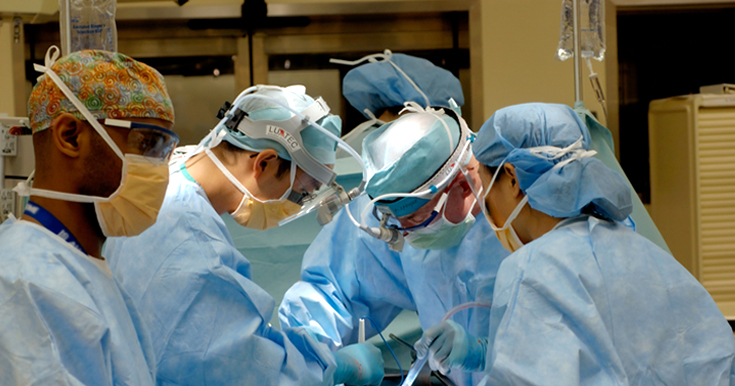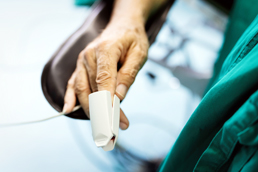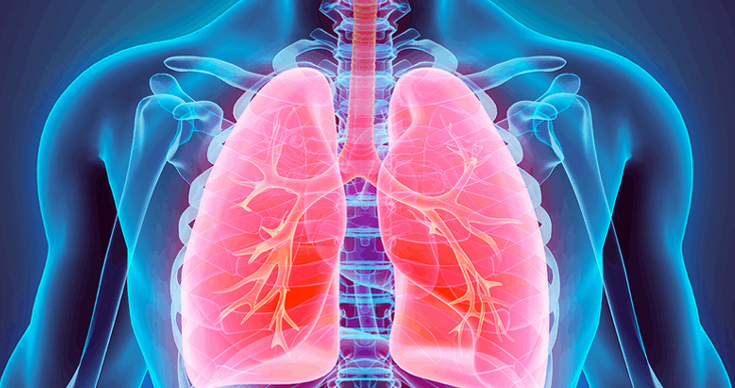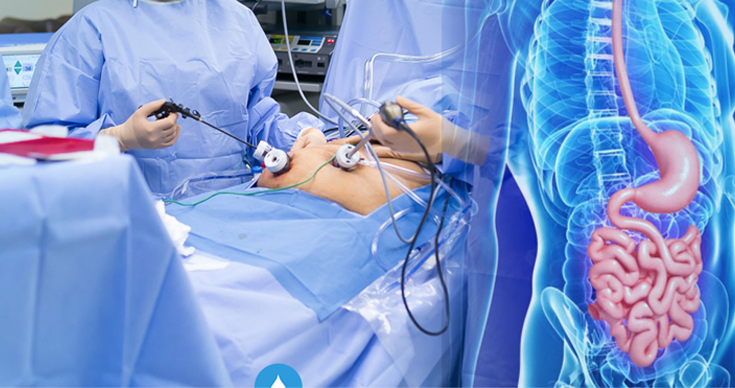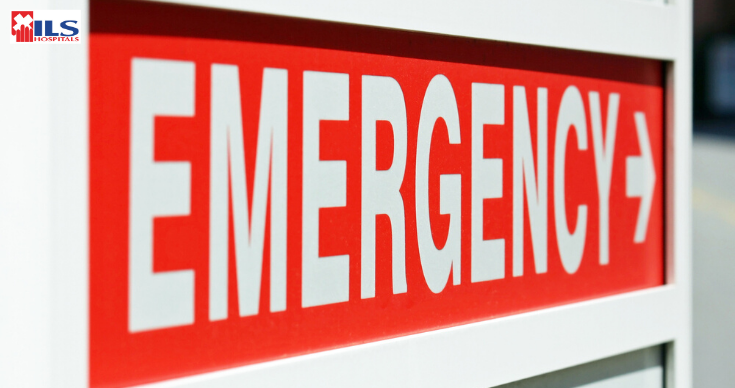Post-Cardiac Surgery Complications – What All Should Be Avoided After A Heart Surgery
Surgeries, of any nature, are complicated and require utmost care and precision. Especially, pre- and post-heart surgeries, everybody needs several weeks to heal itself. The post-care after surgery or ailment is equally valuable and should be a slow & progressive process. The gravity of post-cardiac surgery care must not be overlooked for faster recovery.
Cardiac surgery differs from general surgery, but general surgery hospitals might tell you about what to be avoided after heart surgery. Many general surgeons in Kolkata will guide you through post-cardiac surgery care.
Interventional cardiology is an advanced branch of cardiology that deals with non-invasive techniques to evaluate the functions of the heart and detect abnormalities. Some of the most common interventional cardiology procedures are as follows:
- Coronary catheterization
- Angioplasty and stenting
- Percutaneous Valve Repair
- Balloon Angioplasty
- Atherectomy
Keeping this in mind, we have compiled the complications and preventions of post-surgery conditions that will help you enjoy a healthy life.
Post-Cardiac Surgery Complications
Cardiac surgery is usually done if there is a blocked artery to the heart. As much as it is a matter of care before proceeding with the surgery, it is imperative to be vigilant after the surgery.
Following is the list of complications that might arise after the cardiac surgery-
1 – Chest Infection
After the surgery and anaesthesia, there is a possibility of chest infection in the patient. Depending on the severity, antibiotics and painkillers are used to subdue the infection.
2 – Heart Attack or Stroke
Generally, this may happen if you have a history of cardiac ailments and have undergone surgery. Post-surgery strokes can impact the recovery and will require extra care.
3 – Kidney Failure
In rare cases, the kidney stops functioning post-surgery. In most cases, kidney failure is temporary and is resolved by dialysis.
4 – Blood Clots
Post-surgery, blood clots may form in the body if the patient has a history of obesity, chain smoking, or immobility. Usually, the clots start from the legs and move to the lungs resulting in serious problems.
5 – Post-operative Bleeding
Cardiac surgery involves a lot of incisions and suturing. Sometimes, the bleeding continues after suturing, and fluctuations are observed in the blood pressure. Surgeons take necessary measures to normalize the condition of the patient.
6 – Other
Other complications include irregular heartbeat, chest pain, delirium, difficulty in breathing, insomnia, nausea, poor appetite, constipation, sore throat, and fatigue. But they go away with time.
Post-Surgery Care
1 – Incision Healing
Cardiac surgery includes a lot of incisions and suturing. Thus, post-surgery, avoid direct contact of water with the incision to mitigate any infection on the incision site.
2 – Stop Smoking
While recovering from heart surgery, it is crucial to keep smoking at bay to avoid further complications in the heart and lungs.
3 – Exercising
Any general surgeons in Kolkata will prescribe light exercise or climbing the stairs after cardiac surgery. But at the same time, faster recovery needs enough rest and sleep. Avoid over-exercising and over-sleeping.
4 – Mental Health
Post-surgery, the stress in mind means stress on the heart. Involve yourself in small activities and meditation to avoid stress, depression, anxiety, and anger while recovering. Living happily post-surgery expedites the recovery process.
5 – Eating Habits
Avoid eating oily and fried food. Eat healthy food or consult dieticians in the general surgery hospitals to enquire about post-surgery diet plans. Loss of appetite is common post-surgery but keeping a healthy diet plan balances your hunger.
At ILS Hospitals, we are well-equipped to administer pre-cardiac and post-cardiac surgery care. With the best surgeons’ team, we provide all the treatment and care needed to the patient after cardiac surgery.
Whether it be general surgery or Interventional cardiology like Angioplasty or Valvuloplasty, you need experienced and top cardiologists & surgeons. Even here, the post-surgery aftercare is imperative to recover to your daily routines. We at ILS Hospitals can assist you with clinical cardiology or even general surgery.
If you wish to know more about interventional and clinical cardiology, or other medical treatments in the hospitals, call ILS Care, +91 90514 60000 or visit https://www.ilshospitals.com/
How To Prevent Heart Diseases
We often overhear about a seemingly healthy person passing away from an unanticipated heart stroke. one doesn’t know what’s going on in their body and in what ways it can contribute to the illness unknowingly. It’s extremely essential to start taking care of your health. Heart diseases have become a significant cause of deaths in India, and there is a crying need for spreading awareness about it. We have listed down a few measures to prevent heart diseases and lead a healthy life.
Maintaining A Healthy Weight
Obesity poses an influential risk of heart disease as it manipulates your triglyceride and cholesterol levels. Diabetic people are a majority in the population of those who suffer from heart illnesses. Try adopting a healthy lifestyle by cutting down sugar and eating the right amount of greens. It is important to not let obesity come your way as it makes way for numerous other diseases.
Controlling Blood Pressure
Any individual, irrespective of age, should get their blood pressure checked regularly, if not very frequently, at least once in a year. It’s the fluctuating blood pressure that triggers most of the heart problems. If you are already suffering from heart illness, you should be in constant touch with the top heart hospital near you and keep their contact handy.
Exercise Regularly
Going for a run every morning or partaking in any kind of physical activity for an hour a day improves the blood circulation in your body, and your arteries function well. In this way, blood pressure can be maintained at an optimum level, and hence, the risk of heart diseases is reduced.
Eat Healthy And A Balanced Diet
Many people work out strenuously but don’t give up on the junk food they consume. Further, this cancels out the benefits they are supposed to acquire through the exercises. Reduce your portions and include more and more veggies in your diet. Beans, legumes, fish, meat, low-fat dairy products, fruits, etc. will help you against diabetes and lessen your chances of catching any kind of heart disease too.
Get Enough Sleep
When you don’t stick to your proper seven-hour sleeping schedule, your body drains out, and you keep feeling exhausted all the time. It contributes to high blood pressure, diabetes, and obesity. If you have irregular sleep conditions, contact the best heart hospitals in Kolkata, India, and for that matter, any heart hospital located in major cities.
Stress Management
Stress is a trigger for heart attacks and strokes as it increases blood pressure in the most common situations. In today’s scenario, stress has become one of the main reasons for heart-related issues in all age groups. It is important to cope with stress in the healthiest ways like listening to calm music, exercising, meditating, practising yoga, etc.
Quit Alcohol Consumption And Smoking
Alcohol affects your body negatively in many ways. It makes you gain weight, increases blood pressure, and contributes to organ failure. Similarly, smoking causes the accumulation of harmful substances in the arteries and restricts blood flow. It is also one of the leading factors for coronary heart diseases, strokes, and attacks.
The cardiologists at ILS Hospitals handle multiple cardiological subspecialties. These include, but not limited to the followings:
Cardiac arrhythmia – Persistent irregular heartbeat, which is either too fast or too slow. It is of 2 types, more than 100 beats per minute are called tachycardia and below 60 beats per minute is called bradycardia.
Coronary artery disease, or ischemic heart disease – it includes diseases like stable angina, myocardial infarction, unstable angina, and sudden cardiac death.
Cardiac arrest – a sudden failure of heart contraction that leads to the stoppage in the effective blood flow.
Hypertension – Persistent high blood pressure in the arteries reaching the heart. A prolonged condition can lead to coronary artery disease, vision loss, chronic kidney disease, stroke, heart failure.
Congenital heart defect – Presence of a defective heart since the time of the birth. The consequences can vary from none to life-threatening.
Keeping a close watch on your heart and getting checked regularly is a need of the hour. If not discovered at an early stage, the heart-related problems could become a fatal and substantial risk to your life. Find out the top heart hospitals near you and visit them once in a while as a precautionary measure. If you live in a rural area, get yourself equipped with contacts of big hospitals so that in the time of need, you won’t have to wander cluelessly and know what to do right away. For example, if you live somewhere in the northeastern part, locate the best heart hospitals in Kolkata, India, as it is the nearest metro city and contact www.ilshospitals.com in case of any emergency.
8 Ways to Keep Your Spine Healthy
The backbone of your movement, of your ability to function and sleep, is literally your spine. Almost all movements originate from the spine and without a healthy spine, it is difficult to even conduct daily tasks like sitting, standing or walking without discomfort and pain. As people age, they often complain about back pain from either sitting too long or too much activity or just old age.
Spinal diseases are highly common, especially when people start ageing. Owing to the flexibility of the cervical spine, it is common for people to damage that area over a period of time. Some of the common cervical spine diseases include degenerative disc disease, cervical stenosis, and cervical disc herniation. This occurs when the discs within the vertebrae begin to disintegrate, owing to damage to the fibres deteriorating with time. Other injuries include spina bifida, scoliosis, lumbar spinal stenosis, spondylitis and even tumours spreading and growing between your spinal cord.
Often these diseases present themselves as common symptoms like lower back pain, nausea, radiating pain in your limbs, stiffness, bladder or bowel dysfunction and more. Make sure you take these symptoms seriously and get professional help before it gets worse.
While most of these require medical attention, some spinal issues can be corrected with a change in lifestyle habits and can even be prevented by taking proper care of your spine. Taking care of your spine can be a part of your lifestyle. Certain activities and habits can help keep your spine healthy and happy, making your life much easier. Some of the ways to take proper care of your spine are:
- Stay Active: Maintaining an active lifestyle can help reduce the chances of experiencing lower back pain. Core strengthening and stretching can help the body be more flexible and move easily. Overall, an active life helps keep your back healthy.
- Lift Right: Many people experience severe back pain after they try to lift something heavy. It is important to be in the right posture and use your legs and knees to lift rather than your spine. Do not try and lift an extra-heavy object alone. Instead, get help and lift together.

- Stretch Regularly: To stay flexible and promote your spinal health, you should be stretching your neck and back every day. It helps maintain joint functions, improves your range of motion as well as reduces your risk of a back injury.
- Get Proper Rest: A good night’s sleep can do wonders for your body and especially your spine. Doctors recommend sleeping on your side as sleeping on the stomach puts pressure on the spine. A supportive mattress and pillow alignment also helps with the spine.
- Change your Posture: Often, people experience back pain because of the wrong posture, especially sitting. It increases the load on your spinal discs and wrong posture can cause inflammation, pain and more. It is vital to follow the natural curves of the spine and reevaluate your posture.
- Stay Hydrated: Staying hydrated maintains soft tissue elasticity and fluidity in joints. Loss of fluids causes discs to become brittle and eventually might lead to them slipping. It is also a cause for sciatica. Staying hydrated not only affects the spine, but your entire health.
- Maintain a Healthy Weight: Maintaining a healthy weight helps to take off pressure from the spine. Overweight or obese people put extra pressure on their spine and the muscles around them. A healthy diet and an active lifestyle helps avoid the lower back pain that comes with weight.

- Work Smart: Most adults spend hours in front of some electronic gadget, be it a laptop, mobile phone or television. The right kind of chair and seating position can help improve your back pain and lend functionality. Taking periodic breaks to walk around also helps the muscles to relax.
Despite your best efforts for a healthy lifestyle, sometimes preventive methods are not enough to alleviate back pain. Back pain can indicate more serious problems that might even lead to spine surgery. Seeking medical care is important in such situations to avoid further damage. ILS Hospitals, one of the leading healthcare facilities in Kolkata has an excellent neurological department that deals with spinal injuries and other issues. Visit www.ilshospitals.com to know more or call ILS Care, +91 90514 60000.
The Importance of a Healthy Lifestyle During the Pandemic
If the pandemic of 2020 has taught us anything particularly, it is the importance of having a stable, healthy lifestyle. While the definition of a healthy lifestyle is subject to many facts and interpretations, it should be taken into account that it is both mental and physical. Adopting healthy choices for both your mind and body is crucial and can result in a thriving life at large. The choice is ours to make – eating an apple over the tempting bowl of fried chips to taking a digital detox and picking up a book. Here is a list of things that you should definitely incorporate into your lifestyle for long-term benefits.

1. Hydration is the key
A human body needs enough water to keep the fluid balance in check. Not only that, hydration plays an important role in nutrition as well. We need water to digest the food, get rid of waste and for perspiration. All humans should consume a minimum of 1.5 to 2 litres every day. However, drinks with high sugar level should be avoided.
2. Eat your bowl of fruits and vegetables
As per the USDA’s Dietary Guidelines, it is recommended that adults should eat anywhere from 5 to 13 servings of fruits and vegetables per day as per their age and gender. Five servings of fruits & vegetables are one of the golden rules of nutritional science. This is an excellent way of consuming essential vitamins that contribute to our overall nutrition.
3. All Fats are not bad
It is no news that every balanced diet should include fats – mono unsaturated and poly unsaturated fats. It is important to include healthy fats in our diet from avocados, olive oil, nuts, seeds, etc. to ensure that we consume more healthy than unhealthy fats.
4. Mindful Meal Preparation
Anther tricky aspect of eating healthy is the correct preparation of meal. How well you cook a vegetable ensure the nutrient count – All healthy nutrients can be lost if they are cooked too hot or for too long.The ideal and safe way to go about is by cooking light and thus, eating right. Prepare a diverse meal – the more type your plate has, the more balanced your diet will be.

5. Bid Sugar & Fast Food, Goodbye.
No matter what you have grown up listening to or how much you love your cake, stop consuming sugar. Your body does not need artificial sugar and it is doing more harm to you than any good. Stay wary of what you eat and stay away from the sugar trap. Another evil in the world of a healthy lifestyle is the unhealthy fats that fast food has to offer. Delicious on the tongue and delirious for the body, one should avoid fast-food at all costs.
Making the shift to a healthy lifestyle is not easy but isn’t impossible either. At ILS Hospitals, we advocate a healthy and happy lifestyle. With an underlying mission of ‘Your Health, Our Happiness’, we provide the best of quality healthcare.
Our branch of General Medicine deals with common illnesses, addressing the symptoms, diagnosis, treatment, and recovery from a wide range of diseases involving most of the body parts. To know more, visit www.ilshospitals.com or call +91 90514 60000.
An insight into Lung Cancer, its types and complications
One of the scariest diseases that the world has been fighting is cancer – a disease that destroys the tissues in the body where the abnormal cells divide uncontrollably. Lung cancer is the leading cause of cancer deaths worldwide. It is essentially the growth of deformed cells in the lung. It is riskier in nature as the detection usually happens in the latter stage, i.e. when it reaches the advanced stage. But for an early stage lung cancer, the survival rate is better as compared. Many scientists are working rigorously to examine the risk factors and discovering the protective factors.
It is no news that people who smoke have the greatest risks of lung cancer but that does not account to the fact that non-smokers are free from the risk.
Types of Lung Cancer
Alike all the other diseases, doctors have divided lung cancer into two major types. The two types of lung cancer include small cell lung cancer, exclusively in heavy smokers and non-small cell lung cancer, an umbrella term for several types of lung cancers. While non-small cell lung cancers include squamous cell carcinoma, adenocarcinoma and large cell carcinoma.
The complications caused by lung cancer can be as below:

- Shortness of breath – The cancer grows and blocks the airways that help people breathe, thus, shortness in breath. It also causes fluid to collect around the lungs thus not allowing the expansion during inhalation.
- Blood in cough – One of the rather gory complications are when the cancer causes bleeding in the airway, known as hemoptysis. But treatments are available to control bleeding
- Pleural effusion – When the fluid accumulates in the space that surrounds the affected lung in the chest cavity, is known was pleural effusion, Shortness is breath often results from this. Treatments are available to drain the fluid from your chest and minimise the risk.
- Metastasis – When the cancer spreads to the other parts of body, it is known as metastasis. The early symptoms are pain, nausea and headaches.
When should you visit the doctor?
If the signs are persistent, it is advisable to make an appointment with your doctor. Pulmonology and chest medicine is the medical specialty dealing with detecting and treating illnesses and conditions involving the respiratory tract. Many a time, these patients require intensive medical care and life support.
Pulmonologists address the following conditions
- Asthma
- Rheumatoid Lung Disease
- Severe Lung Infection
- Bronchitis
- Occupational Lung Disease
- Chronic Obstructive Pulmonary Disease (COPD)
- Pulmonary Fibrosis
- Lung Cancer
Pulmonologists perform a range of diagnostic tests to evaluate the nature of the underlying condition and offer treatment accordingly. Some of them are as follows
- Blood Profile Investigation
- Pulmonary Function Tests
- Chest X-ray
- CT Scanning
- Spirometry
- Scintigraphy
- PET (Positron Emission Tomography)
- Sleep Studies
- Bronchoscopy
At ILS Hospitals, the expert pulmonologist offers the best treatment for many pulmonological disorder. ILS Hospitals provides advanced diagnostic services with round the clock doctors and state of the art Operation Theatres. Our renowned surgeons and experienced team of paramedics ensure the complete safety of all our patients. Please visit www.ilshospitals.com/pulmonology-and-chest-medicine/or call us on +91 90514 60000.

Understanding Othropedics & Knee Replacement Surgeries
The human body is perceptive of both internal and external injuries. But quite often than usual, we tend to ignore the minor aches and accept the pain instead of fighting against them. Many people suffer from arthritis or joint pain and it affects the most basic activities like taking a walk, climbing down stairs or sitting up straight. Such issues arise with the breaking down of a protective covering of the tissues causing severe pain, leaving the joints swollen and messing with the everyday functioning. One of the most common ailments is known as arthritis.
Arthritis is an inflammation of the joints that can affect one joint or multiple joints. There are more than 100 different types of arthritis, with different causes and treatment methods. Two of the most common types are osteoarthritis (OA) and rheumatoid arthritis (RA). Though it is more common in the elderly people, even younger people are prone to arthritis, irrespective of their gender. While there are many treatments that can help aid the issue, most surgeons suggest a hip or knee replacement surgery. Let us dive into the details of the same.
Choosing the right surgeon

Trusting the right person for your surgery is extremely essential to the whole process of healing. A number of factors ascertain the success of such surgeries. From identifying the exact problem of the patient to using the ideal implants, your surgeon has to be an expert in this branch. Transparency with the patients is another important aspect that makes a surgeon gain the trust. Walking the patient through the exact details, indulging in an open conversation regarding the technology used for the treatment and clarity on the possible risks involved should be the basic information shared.
Understanding Total Knee Replacement Surgery

A Total Knee Replacement Surgery is a proven surgical procedure that replaces the damaged knee with prosthetics to improve the functioning of the knee substantially. The goal of total knee replacement surgery is to relieve knee pain and increase knee function by resurfacing the bones that meet at the knee joint. The surgeon removes damaged portions of bone at the end of the femur (thigh-bone) and top of the tibia (shin-bone) and replaces them with prosthetic components.
The Promise of a Minimally Invasive Surgery
The great innovation and discoveries of the medical science and technology are constantly working towards improving the lives of every patient. The latest technique and intervention known as computer navigation has improved the success rate of total knee replacement surgeries. Such innovations have enabled the surgeons to reduce and minimise the pain and perform the surgeries with great precision. It has also contributed to the patient’s experience – shorter hospital stays, less rehabilitation time and evidently reduced pain.
The Orthopedics Facility & Faculty at ILS Hospitals
Orthopedics is the domain of medical science that deals with the correction of conditions arising in the musculoskeletal system. An orthopedic specialist employs both surgical and nonsurgical means towards the same. These can include diagnosis of injury/disorder and treatment with exercise, medication, surgery, implants, and rehabilitation, etc.
The surgical reconstruction or replacement of a joint, Arthroplasty, involves Knee Replacement Surgeries – total or partial replacement of damaged knee tissue/bone or both.
Consult our Orthopedics and Joint Replacement department, which addresses issues associated with joint pains and knee replacement surgeries. ILS Hospitals provides advanced diagnostic services with round the clock doctors and state of the art Operation Theatres. Our renowned surgeons and experienced team of paramedics ensure complete safety of all our patients.
To book an appointment or for any other queries, call ILS Care +91 90514 60000 or visit www.ilshospitals.com.
Insomnia or sleep-deprivation? Find out
The essence of a healthy lifestyle revolves around eating right and staying physically active.
But in hindsight, people usually tend to discard a sound sleeping schedule, body’s biological clock. According to the National Sleep Foundation (NSF), sleep is extremely essential for our health and wellbeing. Several individuals tend to not get enough sleep and end up suffering from multiple sleep disorders and most of them, go undiagnosed.
Various factors in our day-to-day lifestyle result in detrimental changes in our body and mind and irregular sleep is one of them.
The two types of Sleep:

REM Sleep or Rapid eye movement sleep is a phase that is characterised by random rapid movement of the eyes, accompanied by low muscle tone throughout the body. It is also marked by the ability to dream vividly. It is the state in which restoration of our brain and body functions occurs, including energy conservation and memory consolidation.
Non–REM sleep is marked by 3 phases of sleep that progressively deepens from light sleep, to restful sleep and ultimately, deep sleep.
Here are the three phases in the sleep cycle and REM phase described.
- Phase 1: The duration between being awake and asleep.
- Phase 2: In this phase, our brain waves slow down, body temperature drops and breathing and heart rate become more regular.
- Phase 3: The final and third phase is the deep sleep – our body muscles are relaxed, blood pressure and breathing rate drops. Sleepwalking, bedwetting and nightmares occur during this phase.
- REM Phase: This phase occurs about 90 minutes after we fall asleep, and is the dreaming stage of sleep. During this phase, the brain becomes more active and the body becomes relaxed and immobilised.
Let’s list down a few important issues to be known when there’s lack of sleep
Affects mental health: Sleep plays an important role in thinking and learning. Due to lack of sleep, a human brain can’t function 24/7 without giving it any rest. This eventually affects your mental health and results in fatigue and frustration.
Affects the immune system tremendously: It is said that sleep helps build up an effective immune system. Thus, lack of sleep can prove to be a barrier for your immune system and might eventually make you feel weak.

Affects the overall functioning: Sleep deprivation can lead to severe health issues including heart disease, high blood pressure, diabetes, irregular heartbeat and more.
Causes headaches: Several sleep disturbances like oversleeping, lack of sleep, or a change in your sleep routine often results in a severe headache, which can lead to other ailments.
How can you avoid Sleep Deprivation?
- Avoid caffeine later than early evening
- Take a power nap to boost your energy
- Follow your proper sleep cycle
- Maintain your room temperature and bed hygiene
- Meditate for 20 minutes before bedtime
- Listen to soft music before bed
- Don’t use electronic gadgets 2 hours before bedtime
- Keep your Cortisol in check
- Sleep on good quality bed accessories
- Say NO to smoking, especially at night
The best way to control sleep deprivation is with the right mindset. If you are facing a sleep disorder, keep a check on your sleeping habits by maintaining a sleep diary. Consult our Neurology department or our Pulmonology department, which addresses issues related to sleep disorders. A pulmonologist treats lung diseases and breathing problems associated with sleeping disorders. In case of any emergency, you can contact or visit ILS Hospitals, a multispeciality hospital, known for its excellent healthcare services.
To book an appointment or for any other queries, call ILS Care +91 9051460000 or visit www.ilshospitals.com
Gastroenterology
The well-being of a human body is often related to the proper functioning of the digestive system. But modern-day diets and lifestyles often tend to meddle in with the smooth functioning, resulting in various minor and major digestive problems. It is only then the expertise of a gastroenterologist has sought after.

What is Gastroenterology?
Gastroenterology is a branch of medicine that deals with the disorders of the human digestive system. Starting from our mouth to the anus, the gastrointestinal tract, along with the alimentary canal, is responsible for the proper digestion of food. Physicians who specialise in this field are called gastroenterologists.
What are some of the common yet lesser-known facts relating to Gastroenterology?

- Heart burns: Our current lifestyles result in one of the most common diseases stemming from our digestive system and that is gastroenteritis. The symptoms range from stomach cramps and diarrhoea, to nausea and vomiting. What people don’t generally know is that chest pain is also a key symptom of gastroenteritis and is often confused with a heart attack. So, the myth equating chest pain to heart issues is not a safe assumption to make and it is best to consult a gastroenterologist.
- Blood in stool: Another common misconception is that blood in stool is usually the result of a tear in the track. However, this often stems from GERD or Gastroesophageal Reflux Disease, a condition where the acids in the stomach irritate the lining of the food pipe and cause blood to pass through. It is safe to consult any gastroenterologist for the same.
- Smoking & digestion: The most common misconception that people tend to agree to is that smoking helps with digestion. The fact here is that it may help in the movement of the stool but never helps in digestion. On the contrary, smoking causes heartburns, peptic ulcers, liver diseases and also gallbladder stones.
- Overuse of herbal supplements: The whole fad of switching to herbal and dietary supplements is causing people more harm than they know. People take these without weighing in the side effects just because they are natural. In reality, these supplements, if consumed in excess, include vitamins and minerals that can cause liver inflammation, scarring, liver cirrhosis and even liver failure.
ILS Hospitals has state of the art operating theatre, endoscopy suites, and modern types of equipment and modes of treatment for addressing the diseases. With years and years of research, Gastroenterologists provide comprehensive care for patients involving gastrointestinal endoscopic procedures as well as the interpretation of results. The bulk research performed by them translates to more accurate detection of grave diseases like cancer via colonoscopy. Most of the diseases treated by gastroenterologists are manageable, their main goal is to improve overall the quality of life using advanced clinical care. In case of any emergency, contact or visit ILS Hospitals, a multispecialty hospital, known for its excellent healthcare services. To book an appointment or for any other queries, call ILS Care +91 90514 60000 or visit www.ilshospitals.com
World Tobacco Day: How To Quit Smoking Once And For All
We all know why smoking is considered a bad habit and how smoking affects our health. We all know how smoking kills. Yet, many people find it difficult to quit smoking permanently. The reason – nicotine addiction.
On World Tobacco Day, ILS Hospitals, one of the most renowned multispeciality hospitals in Kolkata and Agartala will show you effective ways to quit smoking for once and for all.
Know your reason
If there’s a will, there’s a way. If you add reason to your plan, it makes more sense and you have a higher chance of success. People smoke for various reasons, but, the most common reason is to get temporary relief from stress. Then why a sudden decision to want to quit smoking? Is it because you want to live a healthier lifestyle or is it because you want to keep yourself and your family healthy and safe? Know your reason.
Be determined
Determination is your best friend now. Be determined that you have to quit smoking no matter what.
Pledge to live a healthier lifestyle
Smoking is one of the unhealthy habits ever known. If you swap it with healthy habits, like eating healthy food, sleeping on time, doing regular exercise, then it would become easier for you to quit this unhealthy habit.
Avoid social gatherings with smokers
Human beings imitate others. When you’re on your way to quit smoking, you should avoid hanging out with your friends who are avid smokers so that you do not crave for cigarettes.
Stop the consumption of alcohol
People generally smoke cigarettes while consuming alcohol as it relaxes them. Well, it’s a temporary relaxation. For those who have newly quit smoking should definitely avoid the consumption of alcohol.
Find your support system
Your partner, friends, and family love you more than you know. If not for yourself, quit smoking for the sake of your loved ones. Let them know that you care for them, you’re on your journey to quit smoking and making them proud of you.
Keep yourself occupied in other activities
There are many productive things to do other than smoking. You should involve yourself in other activities, like doing household chores, spending time with your loved ones, reading books, watching informative and motivational videos, and upskilling yourself by learning a new course.
Seek professional medical therapy
If nothing else works, professional medical therapy will. Seek professional medical therapy for your nicotine dependence.
At least try to cut down the number of cigarettes you consume a day. Your journey will be difficult but worth it. ILS Hospitals, one of the best hospitals in Agartala and Kolkata wishes you best of luck.
How To Handle A Medical Emergency Effectively
A medical emergency is a serious condition that requires immediate medical supervision or else it can cause serious harm or injury to the affected person. Few examples of a medical emergency are burns, poisoning, injuries, bleeding, shock, strokes, severe allergic reactions and so on.
Not everyone knows what to do in case of a medical emergency, so ILS Hospitals, one of the best hospitals in Agartala and Kolkata will tell you how to handle a medical emergency effectively.
So without adding anything else, let’s continue further.
Stay Calm And Composed
Medical emergency is an alarming situation and can make people anxious. First and foremost thing to do during a medical emergency is to have a calm and composed demeanour until help arrives. Take deep breaths to calm your nerves and get relief from anxiety.
Call Medical Emergency Services At Once
Help takes time to arrive. So, whenever you notice someone in need of urgent medical supervision, call your local hospital for an ambulance without any delay.
Always Carry A First Aid Kit
First aid kit should be inside every home, school, college, office and any other organisations. You should even keep a small medical toolbox inside your car and backpack. Provide first aid to the patient to avoid any further damage.
Give CPR To The Patient
If the patient does not breathe despite a pulse then perform a CPR (Cardio-Pulmonary Resuscitation) or tell someone else to perform one if you do not know the CPR procedure. Ensure that the patient’s airway is not restricted by removing the patient’s tight clothing. Remember, it’s an emergency so you need to do things as required.
Always help people in need of medical emergencies whether you know them or not. For any medical emergency, you can visit ILS Hospitals, one of the best hospitals in Kolkata and Agartala.











